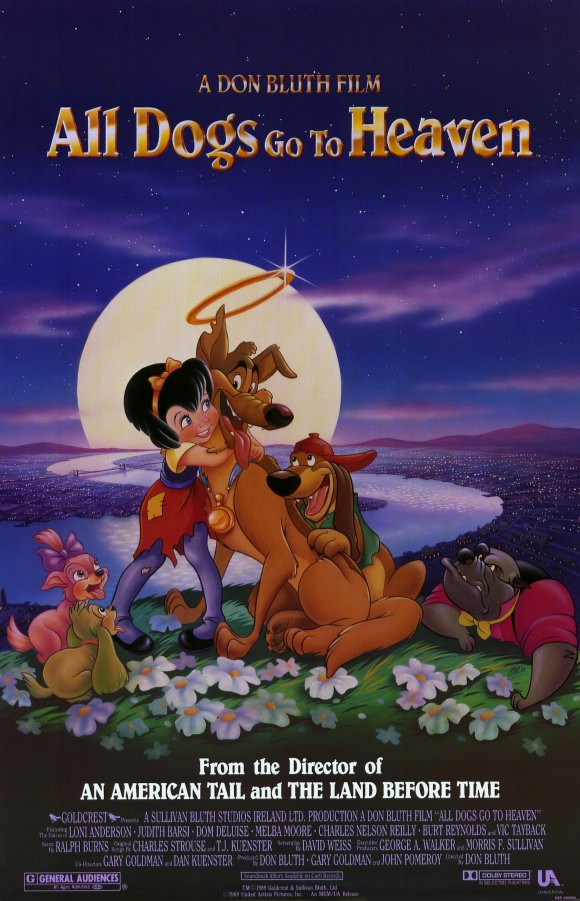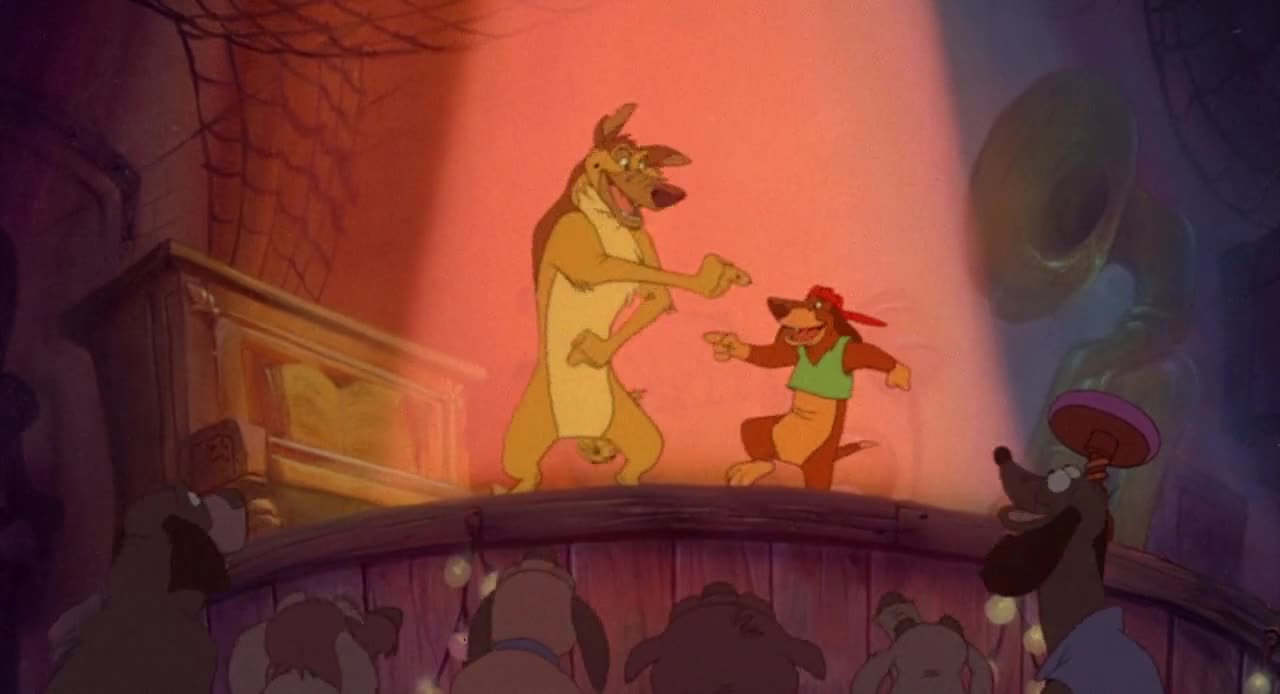 Tim here. We’re talking 1989 this month at the Film Experience, and as any dabbler in the history of animation knows, 1989 is most important for being the year that Walt Disney Feature Animation get back on track after some two decades in the wilderness with the smashing success of the fairy tale musical The Little Mermaid.
Tim here. We’re talking 1989 this month at the Film Experience, and as any dabbler in the history of animation knows, 1989 is most important for being the year that Walt Disney Feature Animation get back on track after some two decades in the wilderness with the smashing success of the fairy tale musical The Little Mermaid.
That’s not what we’re here to talk about. The Little Mermaid doesn’t need me: it’s a stone-cold all-time classic that everybody reading this has an opinion on already. Instead, I would like to take you to the other animated feature that opened on November 17, 1989, and which crumpled in the face of Mermaid’s juggernaut performance at the box office. That day, y’see, also bore witness to All Dogs Go to Heaven, a film which shriveled up and died in the face of Disney's singing crabs and diva octopodes.
This was the fourth feature made by Don Bluth, who had once been the heir-apparent to the Disney studios until he fled that company during the joyless production of The Fox and the Hound in 1979. Throughout the ‘80s, he and his succession of companies had represented an old-fashioned, back-to-basics alternative to the confused, often unpleasant films Disney was miserably trying to hawk, and his two biggest successes – 1986’s An American Tail and 1988’s The Land Before Time – found him effectively beating his old employers at their own game.

Once Disney found its footing, though, it was all over. All Dogs Go to Heaven tanked, and Bluth’s only subsequent film of any real impact was Anastasia, which he made in 1997 as a journeyman at Fox. And as much as I’m fond of Disney’s run of films in the 1990s that left Bluth in this lurch, I’ve always been very sad at what happened. Bluth’s films are far more idiosyncratic and weird than anything Disney made, often to their extreme detriment. But when they’re working, there’s a real delight to the oddball situations and unrepentant grotesquerie of the character designs.
Grotesques are something All Dogs certainly has in abundance: among the few things the film remains generally well-known for is its nonsensical narrative layover with a musical-loving alligator who looks like this:

But there’s a good deal of sugary sweetness, too. The film’s hallucinatory plot involves a dead German Shepherd conman named Charlie (voiced by Burt Reynolds) who escape from heaven to get revenge on his unscrupulous bulldog business partner Carface (Vic Tayback), by stealing Anne-Marie (Judith Barsi), a human girl with an ability to communicate with animals of all species, that Carface has been exploiting to help him fix races. The more I go into it, the more insane I’ll sound. There are laser guns at one point. So I’ll content myself with saying that Anne-Marie’s totally guileless affection for all creation leads her to latch onto Charlie as a savior and benefactor, and eventually she melts his caustic, cynical doggy heart.

Absolute kiddie-flick boilerplate, but the grimness that saturates so much of All Dogs Go to Heaven keeps its descent into warm fuzzies from feeling too obnoxious; in fact, it’s even a bit of a relief. The contrast between the hard edge of things like a Hell nightmare and a fixation on death, the saccharine emotions, and the overwhelming ‘30s-ness of the plot, with its Depression-style gangsters (and Anne-Marie’s character design, a clear throwback to animation in the ‘30s) are what drives the film: it’s inhumane and tender, distressing and funny, and whether it’s working or not, it’s certainly not like anything else that Western animation was producing at that time. The closest that I can come up with are some of the more enthusiastically weird Flesicher cartoons from the ‘30s, but the style here is far more polished, and that contrast, too, feeds the movie’s unnerving energy.
Personally, I find it all quite deliciously off-kilter: it’s different and dangerous in ways that most mainstream cartooning is terrified of (though I think that the film would feel a lot more comfortable alongside some of the weird tangents of modern-day animation than it could have at any point in the 20th Century). Although I concede that it’s also tremendously alienating in a lot of ways, and will probably never be rediscovered as a lost classic. It’s beautifully animated, at times, and refreshingly unconventional in a most convention-bound medium; but above everything else, it’s weird. For it to be the end of Bluth’s functional career on the A-list is sad, but totally unsurprising. I’m just pleased that he got to push out one last obviously personal project before the bottom fell out, and if The Little Mermaid ultimately set in stone a path for animation to follow that it still hasn’t shaken off entirely, 25 years later, All Dogs Go to Heaven proudly, perversely stands as a sign pointing to a much darker road not taken.
